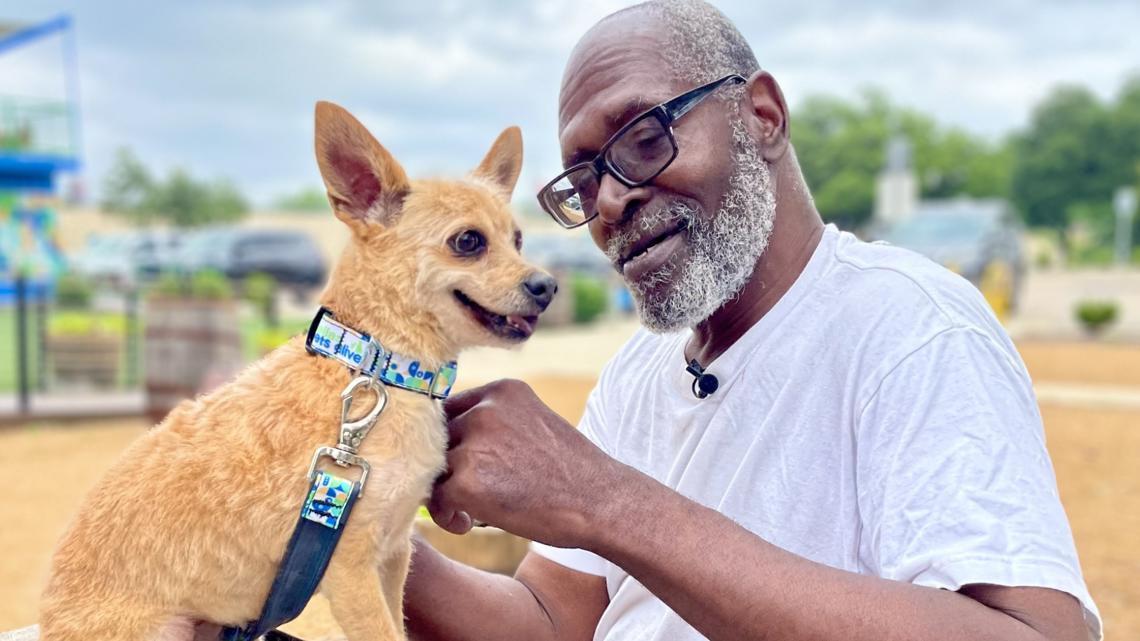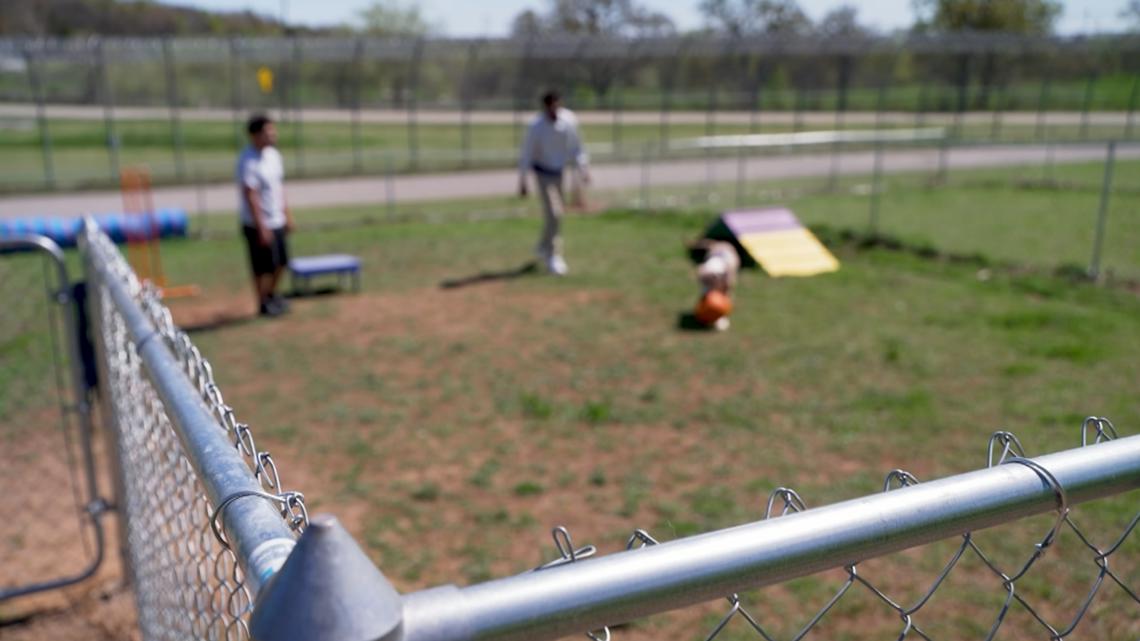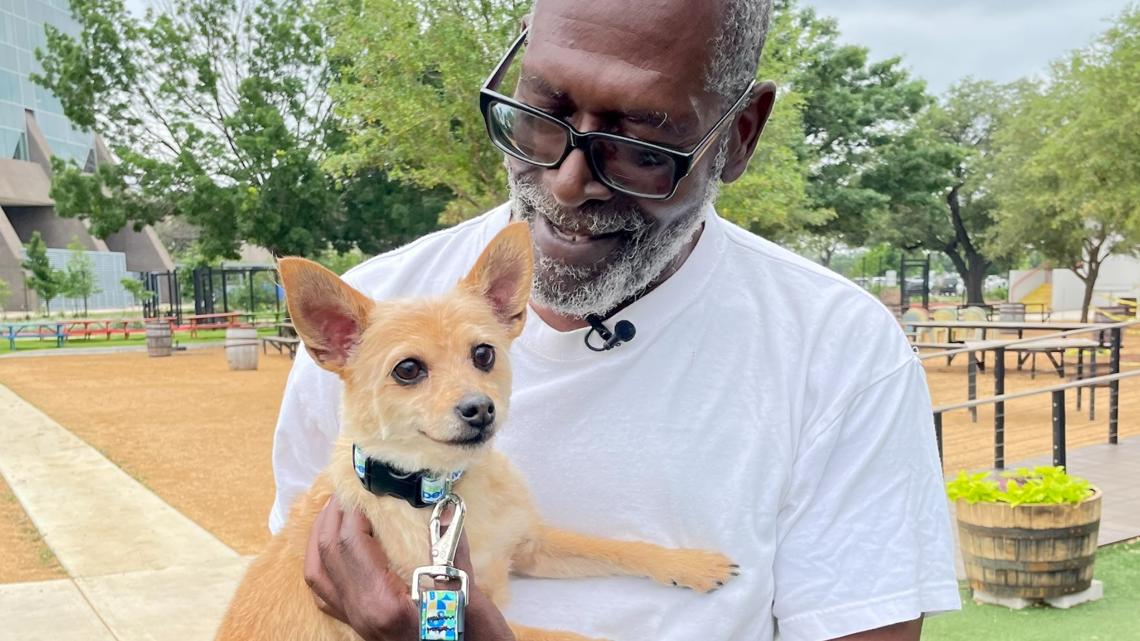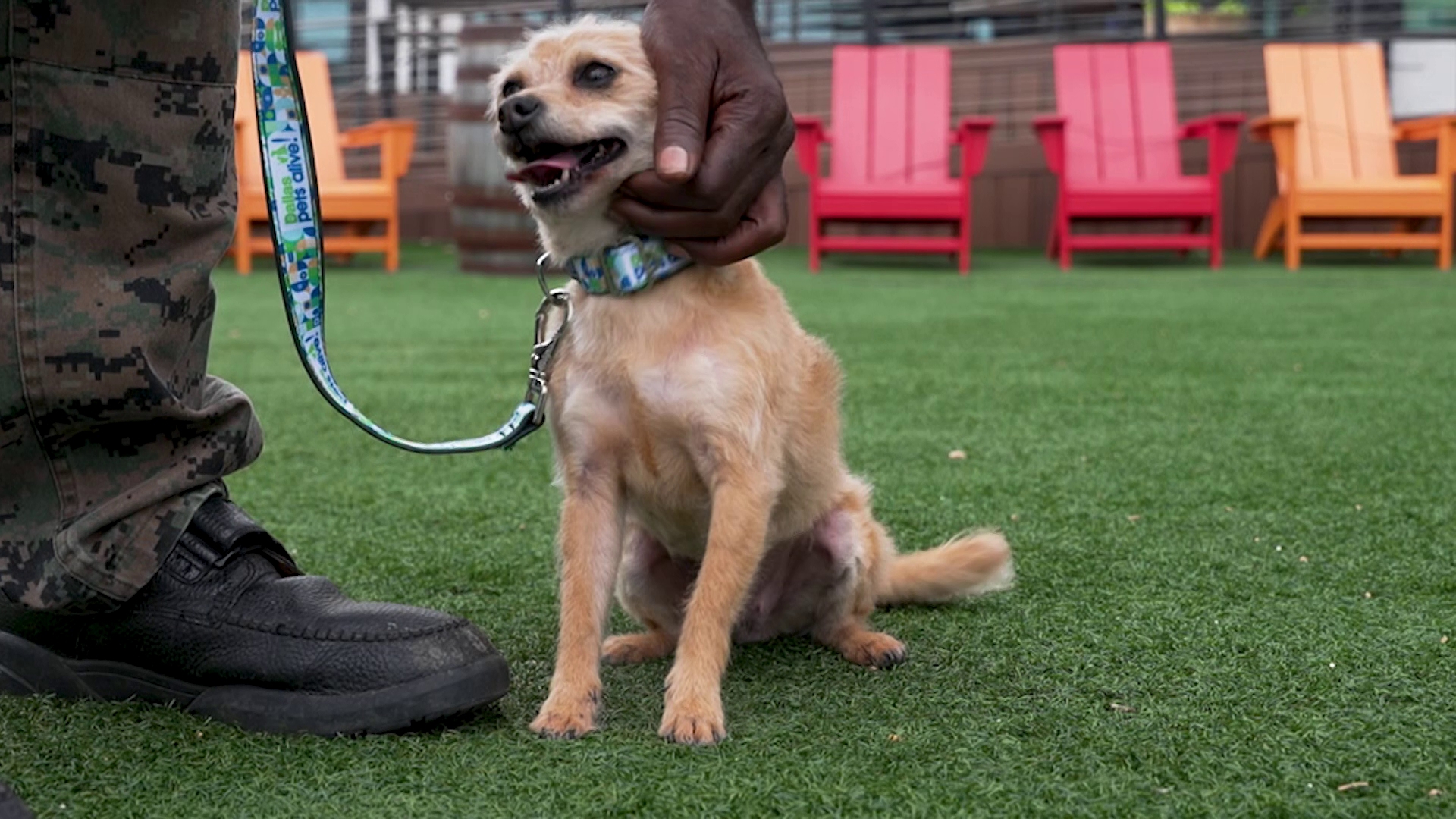GAINESVILLE, Texas — Byron Kennard was running low on money — Maybe lower on hope.
Rental assistance ran out for the 66-year-old marine and Army reserve veteran. His Dallas apartment complex claimed he was several months behind in rent — he disputes that.
He got evicted. And the only place he had to go was a men’s shelter, where dogs are not allowed.
He can still remember the tears that poured down his cheeks in the parking lot of Dallas Animal Services. He was holding his beloved Honey in his arms for what he thought was the final time.
Then someone at the shelter said to call Dallas Pets Alive.


Dallas Pets Alive offers temporary fostering for people in situations like Byron’s.
Their Positive Alternatives to Shelter Surrender, or PASS, program has been around since 2016.
And now a new partner is putting foster dogs in an unexpected place: a high-security juvenile correction facility in Texas.
Gainesville State School
“A lot of our youth come from very hard places,” said Darryl Anderson, Gainesville State School superintendent. “Some of our kids are victims of neglect and abuse.”
Approximately 160 youth are at Gainesville State School.
The Texas Juvenile Justice Department does not use the word, "convicted," but instead "adjudicated."
Every teen at Gainesville committed a felony.
Some of their crimes were violent.
TJJD requires each youth to go to school each day. Many complete vocational training, earn certifications, and compete in athletics.
But they also might be required to complete a sex offender treatment program, alcohol and drug rehab, or anger management counseling.
“We want them to be able to go back into society and be productive members of society and not re-offend,” Anderson said.
The partnership with Dallas Pets Alive is a new incentive.
BARK Dorm
Sixteen youths live in what they call the BARK dorm.
Up to six dogs live there too.
BARK stands for Building Attachment and Resilience K-9. Each teen in the dorm earned his way in through good behavior and good grades.
“You’ve shown you know how to act, you’re on your way to being rehabilitated, and you’re on your way to going home,” said A.S., a 17-year-old from Fort Worth.
WFAA agreed not to reveal anything about the teens beyond ages, hometowns, and initials.


The dog in A.S.'s care is a pit bull named Rebel.
“When I first got him, he was kind of shaken up because of where he came from. And I felt that same way – we had that same connection,” he said.
A.S. has a little girl at home. He said Rebel eases the pain of being away from her.
“I had my daughter when I was 14 turning 15,” he said. “I took my dad's skills into being an owner skills because he’s kind of like my son, too.”
A.S. shared Rebel with Z. H., an 18-year-old from Odessa who was approaching the end of a three-year sentence.
Z.H. used to live in a dorm for capital offenders.
“They say a dog is a man’s best friend and I agree,” he said. “If I feel down, he’ll come around and help me out. I know if I’m down. he’ll pick up my spirits.”
The dogs all have owners facing crises they hope will be short-lived, like entering rehab or experiencing homelessness.
The teens in the BARK dorm feed the dogs, take them out, clean up after them, play with them, and train them. The dogs even sleep in the boys’ dorm rooms.
“That dorm has the fewest amount of incidents on campus. Very few, if any, rule violation reports,” Superintendent Anderson said. “They get along in there. And they do it for the benefit of these dogs.”


18-year-old T.S. from Dallas said he learned patience and how to control anger through treatment programs at Gainesville.
And he learned something he’d never felt before from the dogs.
“They taught me really just love. Because I didn’t really experience love that much,” T.S. said.
Reuniting
On our visit, the dogs in the BARK dorm were Rebel, Maverick, Maggie, Nash, Amigo, and Honey.
T.S. said he loved them all. But Honey was his favorite.
“She’s good company,” he said.
Kennard wasn't surprised to hear that.
“Makes me more in love with her I guess you could say,” Kennard said.
The entire four months Kennard spent in a Dallas men’s shelter, Honey lived at the Gainesville State School.
By late May Kennard was back on his feet. He found an apartment, so Dallas Pets Alive brought Honey home from Gainesville.
The moment they reunited, Honey couldn’t stop wagging.
And Byron couldn’t stop smiling.


“To see Byron and Honey connect again is a beautiful moment,” said Leslie Sans, founder and executive director of Dallas Pets Alive. “It’s exactly what we want to have happen.”
The need in North Texas is beyond measure, Sans said.
“We get a minimum of 15 inquiries a day for help,” she said. “It’s non-stop.”
She’s been to Gainesville multiple times and marvels at the special connection between the youth and the dogs.
“They put on this persona that they’re very tough. They’re all tatted up and they’re tough. But as soon as they see the dog, it completely goes away,” Sans said.
The relationship between A.S. and Rebel is proof.
“He’s trusted me. And I’ve trusted him. And I feel like we’ve made a bond that nobody can break,” A.S. said.
Holding Honey, Kennard thought back on the grief he felt, certain his only option was surrendering Honey to an overflowing shelter where she could have easily been put down.
“I am grateful to Dallas Pets Alive," he said. "They give people hope."

